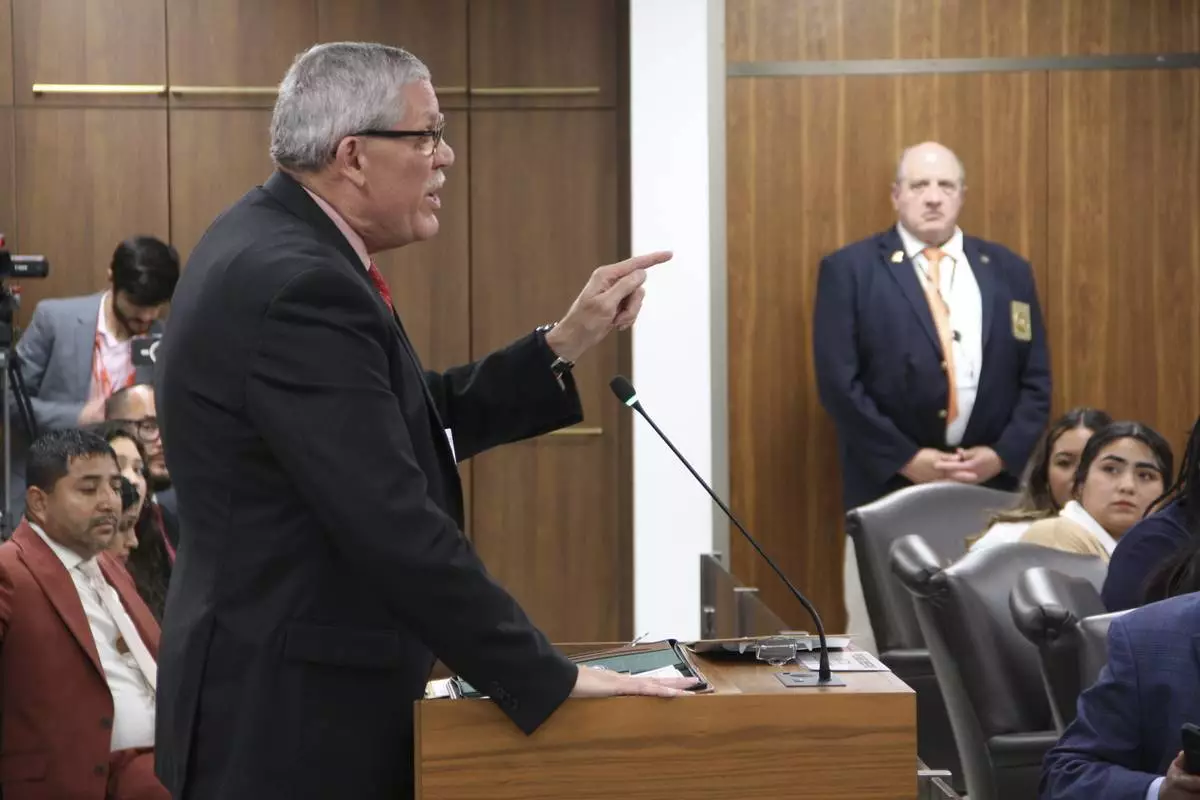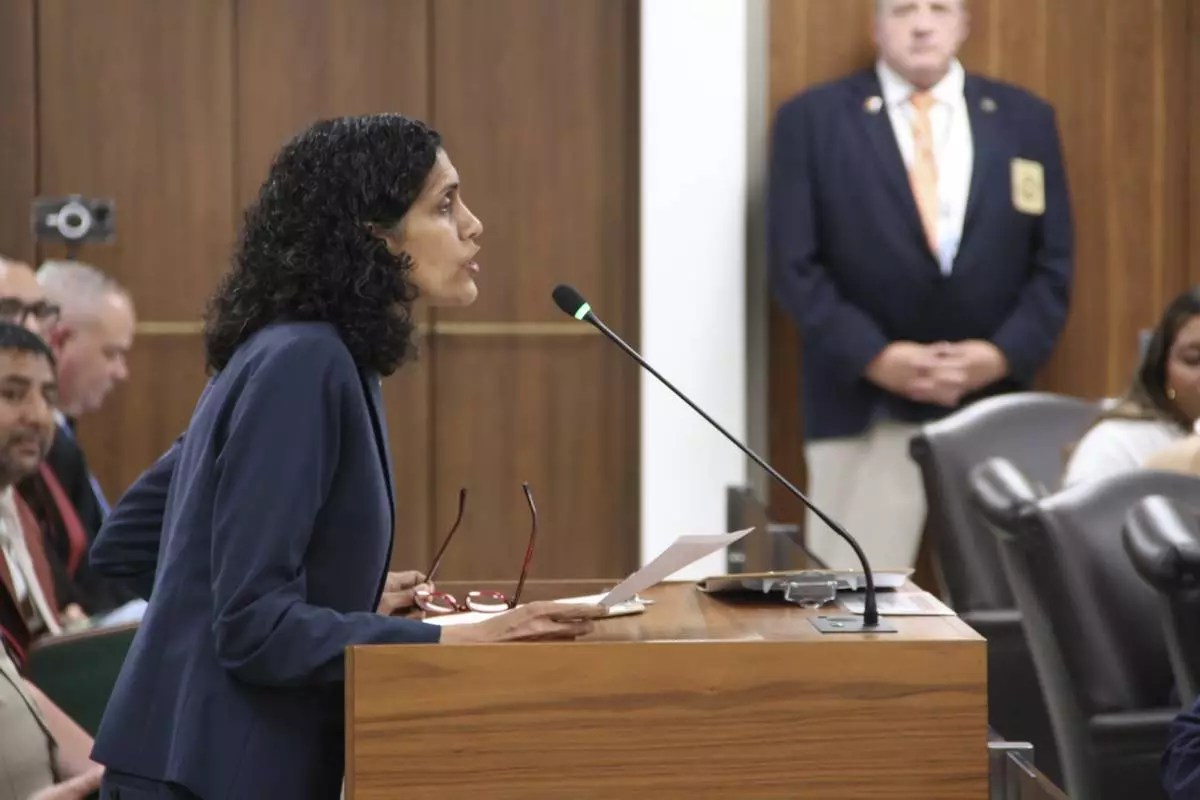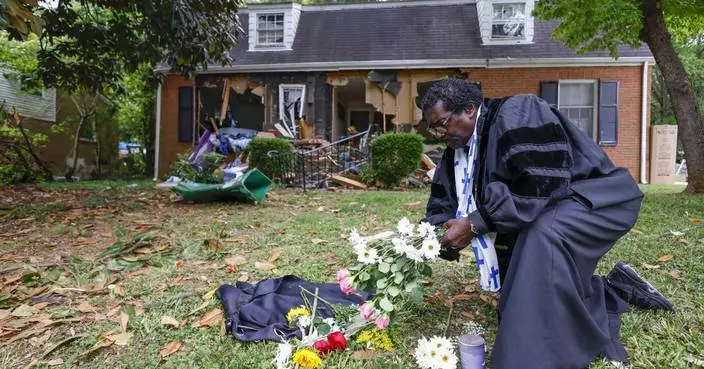PORTLAND, Maine (AP) — Democrat Joseph E. Brennan, whose hardscrabble childhood shaped his working-class views in a political career that included two terms as Maine's governor and two terms in the U.S. House, died Friday evening at his home in Portland. He was 89.
Brennan died with his wife at his side a few blocks from the third-floor tenement housing on Munjoy Hill where his Irish immigrant parents raised a family of eight children, Frank O'Hara, a longtime friend, said Saturday.
Brennan's experience in that neighborhood, a working-class melting pot, stayed with him when he entered politics with a campaign for the Maine Legislature at age 29, O'Hara said.
An Army veteran, Brennan attended Boston College under the GI Bill and graduated from the University of Maine Law School. He served as a county district attorney and state attorney general, in addition to state lawmaker, governor and congressman.
Former Democratic Gov. Joe Baldacci called Brennan “a friend, a mentor and a dedicated servant.”
“He was a man of the highest integrity, who led Maine through difficult times. He believed that he had an obligation to make things better, and he lived that ideal through his commitment to public education and improving the state’s economy,” Baldacci said.
As attorney general, Brennan participated in negotiations with Wabanaki tribes and the federal government on what became the Maine Indian Land Claims Settlement Act of 1980, which was signed by President Jimmy Carter when Brennan was governor.
Also as governor, Brennan launched education reforms, pressed for tough highway safety measures and helped establish the Finance Authority of Maine.
Current Gov. Janet Mills, a fellow Democrat who was appointed by Brennan in 1980 as the first woman to serve as district attorney, said her selection despite objections from a number of men at the time put her on a path to become Maine’s first female governor.
“Gov. Brennan demonstrated for me and others that politics is about building relationships, that public service is not about enriching yourself but about enriching the lives of others, and that the most important relationship is the one we have with the people we serve,” she said.
Another key appointment by Brennan was tapping George Mitchell, a federal judge, in 1980 to fill the seat vacated by Democratic U.S. Sen. Edmund Muskie, who resigned to become secretary of state. Mitchell went on to become majority leader in the Senate.
“His family and the people of Maine have lost a great man, and I have lost a dear friend,” said Mitchell, who called Brennan “a superb leader and lawyer who understood the importance of a firm and fair system of justice in our democracy.”

FILE - Former Maine Gov. Joseph Brennan is seen at the State House, Tuesday, Jan. 28, 2014, in Augusta, Maine. Brennan, whose hardscrabble childhood shaped his working class views in a political career that included two terms as governor and two terms in the US. House, died Friday evening, April 5, 2024, at his home in Portland, Maine. He was 89. (AP Photo/Robert F. Bukaty, FIle)

FILE - Maine Gov. Joseph Brennan, left, enjoys a laugh with U.S. Sen. Joseph Biden of Delaware during the opening ceremonies at Maine's Democratic presidential straw poll in Augusta, Maine, Friday, Sept. 30, 1983. Brennan, whose hardscrabble childhood shaped his working class views in a political career that included two terms as governor and two terms in the US. House, died Friday evening, April 5, 2024, at his home in Portland, Maine. He was 89. (AP Photo/Pat Wellenbach, File)
RALEIGH, N.C. (AP) — A bill that would require North Carolina sheriffs to comply with requests by federal agents interested in picking up jail inmates believed to be in the country illegally passed a Senate committee Tuesday, making it the first major legislation to advance in this year's work session.
The bill already cleared the House last year but stalled in the Senate until it was approved by the chamber's judiciary committee on a voice vote. The Senate action signals the measure is a priority for state Republicans who now hold narrow veto-proof majorities in both chambers. A full Senate vote could come later this week.
Two earlier editions of the bill passed the legislature in 2019 and 2022, only to be successfully vetoed by Democratic Gov. Roy Cooper because Democrats held more seats than today. GOP election gains mean Republicans can override a potential Cooper veto this year if they stay united. Cooper has said a previous version was “only about scoring political points” by the GOP on immigration.
The bill essentially requires sheriffs or jailers in all 100 counties to hold inmates accused of violent felonies or some misdemeanors up to 48 hours if U.S. Immigration and Customs Enforcement has issued what's called a detainer. It also requires the involvement of judicial officials to order law enforcement to hold the inmate in question, according to the bill.
In an ICE detainer request, immigration agents ask to be notified before the release from a local jail of a defendant whom the agency believes is in the country unlawfully.
Sheriffs or other law enforcement officials already are tasked with checking an inmate’s legal status if they are charged with serious crimes, according to state law. If a determination cannot be made on someone’s legal status, a query should be sent to ICE.
But not all sheriffs are following through with those queries, said Rep. Destin Hall, a Caldwell County Republican and a sponsor of the bill who spoke at Tuesday's committee hearing. Hall added that a group of sheriffs — primarily Democrats from urban counties — have resisted compliance with detainers, which critics say aren’t true arrest warrants. He said those shortcomings inspired a need for the bill.
“To me, it is amazing that we have to have a bill like this,” Hall said. “It seems to be common sense that law enforcement should cooperate with one another.”
Hall said the bill would make communities safer. He cited incidents where federal immigration officers should have been contacted about an inmate, but they were later released and went on to commit more crimes.
Rockingham County Sheriff Sam Page, a Republican, spoke in support of the legislation, saying it would “remove criminal offenders from our communities.”
Most public speakers during the hearing opposed the measure, however. Lawyers, activists and small business owners voiced concern that the bill could lead to North Carolina’s immigrant community feeling unsafe and unwelcome.
The legislation also raises serious constitutional concerns of due process violations and causes more problems for law enforcement, said Sejal Zota, legal director with the Just Futures Law group, which assists immigrants.
“The bill interferes with communities and sheriffs’ decisions about local resources and priorities, exposes sheriffs and counties to expensive lawsuits for constitutional violation and further erodes community trust in law enforcement,” said Andressia Ramirez of the North Carolina Justice Center, which advocates for low-income residents.
Mecklenburg County Sheriff Garry McFadden, one of the Democratic sheriffs who doesn't comply with detainer requests, said last week the bill is an “absolutely” political move that unfairly targets sheriffs in urban counties. But he said he would comply with the law if the bill should be enacted — even if he had some questions on how it would affect county resources.
An amendment approved Tuesday by the committee in part would allow anyone to file a complaint with state Attorney General’s Office if the person alleged a sheriff or jail administrator wasn’t abiding by the proposed legislation. The attorney general could then ask a judge to force the jailer to comply.
The bill must clear one more Senate committee. Wilson County Republican Sen. Buck Newton, a judiciary committee co-chairman, told reporters it was a “reasonable expectation” for the bill to be voted on the Senate floor this week. The House also would have to formally agree to the Senate changes for it to reach Cooper's desk.

Rockingham County Sheriff Sam Page expresses support for the immigration-related bill during a state Senate judiciary committee hearing at the Legislative Office Building on Tuesday, April 30, 2024. He said the bill would keep communities safer. (AP Photo/Makiya Seminera)

Sejal Zota, the legal director for the Just Futures Law advocacy group, voices opposition to the immigration-related bill during a state Senate judiciary committee hearing at the Legislative Office Building on Tuesday, April 30, 2024. The bill enforces compliance with federal immigration officers' requests to detain inmates for sheriffs and jail administrators. (AP Photo/Makiya Seminera)













